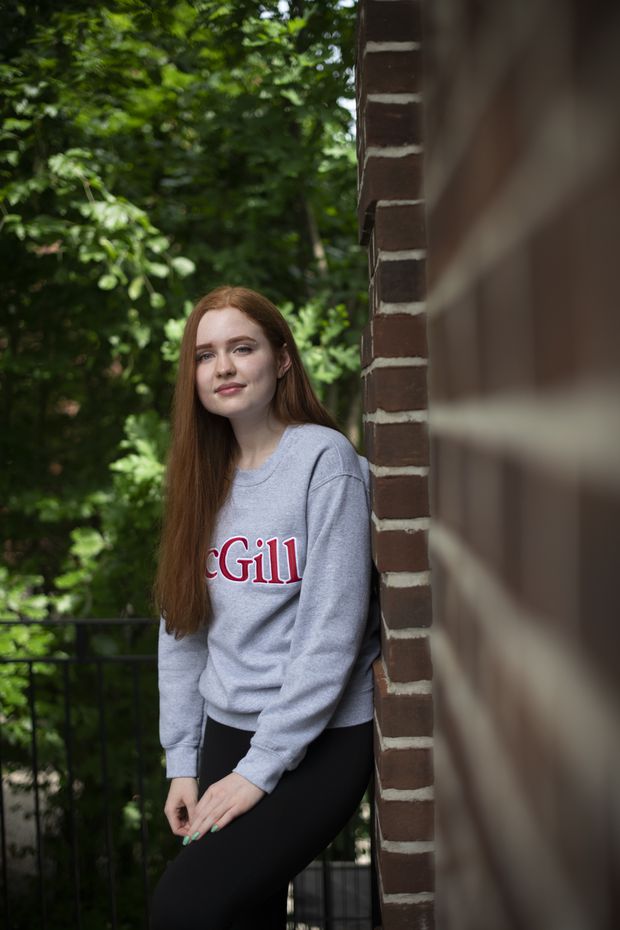There were all sorts of things Aiden Rylott was looking forward to about his first year at Carleton University this fall: living in residence in Ottawa, attending crowded lectures, the campus clubs and social life. Then the pandemic hit, and suddenly none of those activities looked likely. Across the country, universities have declared that lectures will be delivered primarily online, and capacity in residences has been reduced.
So, like thousands of prospective students, Mr. Rylott – who’s finishing high school in Yellowknife – started looking into the possibility of taking a gap year, in the hope that by 2021, university life would have returned to something closer to normal.
The concept of the gap year has existed for decades, giving kids an opportunity to work or see the world, to develop new interests and skills before taking life’s next step. But universities say they’ve seen an explosion this spring in questions about deferring admission as students and their families ponder how the pandemic will affect learning opportunities.
It’s still not clear how many students will actually choose to postpone their studies, however, since taking a gap year in the time of COVID-19 comes with its own complications: Unemployment has skyrocketed, meaning it’ll be harder for young people to find jobs, and travel is severely restricted. Data in Ontario, at least, shows that students are applying and accepting admission offers at rates similar to previous years.
“The conversations are completely different this year,” says Michelle Dittmer, president of the Canadian Gap Year Association, which provides advice on gap-year planning to parents and students. Inquiries have increased fivefold, she says, and the plans she’s been helping to develop this year involve activities children can do close to home: volunteering, job shadowing, starting a small business, developing a skill or learning a language. “It’s about helping them make those creative connections to the opportunities that exist and are possible, given the COVID restrictions,” Ms. Dittmer says.
Madelyn Mackintosh, a 17-year-old who aspires to work in public health, was accepted to McGill University. A few months ago, she was certain she’d be heading to Montreal this fall. Now, however, she’s leaning toward a gap year. “The university experience is something I’ve been looking forward to for years,” she says. “The only factor in that decision is the pandemic.”
She hasn’t enjoyed the virtual learning experience at her Toronto high school, and she doesn’t want to start university the same way. In addition, the campus social life she’d imagined now seems as though it will be significantly dimmed, and she’s seriously considering staying home, spending part of her gap year shadowing physicians and other health professionals.
Hugh Kaiser of Duncan, B.C., is similarly struggling with whether to defer his acceptance to the University of Victoria, says his mother, Mona Kaiser. She worries about whether her son will thrive in an online format. “He’s just not that kind of learner,” she says. “He’s a hands-on kid who does well with interaction in the classroom. Watching lectures with limited ability to interact is just not for him. We really are betwixt and between.”
Mr. Rylott was also torn. When he began looking into gap-year opportunities, he found them fairly limited. With international travel out, he says, his likely options were to find work in construction or as a math tutor in Yellowknife (although opportunities might be curtailed owing to physical distancing rules). “For me, a lot of it was about time and how I would spend it, and what I’d be doing if I was taking a gap year,” he says. “There’s not a lot of jobs up here that I would feel are progressing my future.”
So, although he was concerned about a less-than-ideal first year, he started to ponder whether it would be worse not to be in school at all.
And there are definitely some potential upsides to enrolling in the fall. There’s the cost savings of living at home while attending Carleton, where he was accepted into the aerospace engineering program. He’ll also get to keep his entrance scholarship without having to reapply. And if he gets through the big introductory classes now, he’ll have more time to focus on smaller, higher-level classes once he actually arrives on campus, he says.
His mother works in adult education and had initially pushed the idea of taking a gap year, since she believes it can be beneficial as a way to grow and mature outside the institutional setting. But even she has come around, seeing how eager her son is to begin his studies.
She has studied what’s effective in distance learning, so she and Mr. Rylott have started planning a system that would allow him to focus on his remote studies. They found some local engineers willing to act as mentors and help answer any questions he might have. They also found a local co-working space willing to rent him a desk. (His mom says she knows from her own work the importance of having a dedicated space for studying that’s not one’s bedroom.)
So for now, Mr. Rylott says he’ll likely take his place at Carleton, at a distance, this fall. “I’m mostly excited about getting to learn more about [subjects] I like,” he says. “I love school. I just want to get this going.”
JOE FRIESEN
POSTSECONDARY EDUCATION REPORTER
The Globe and Mail, June 16, 2020

